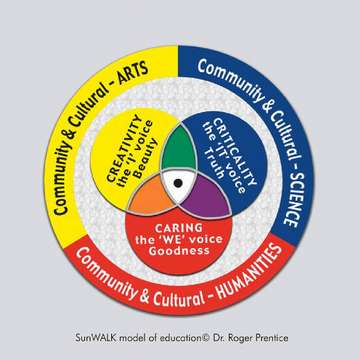
An interesting interview of Ram Dass by David Jay Brown and Rebecca McCLen Novick is available online HERE
David Jay Brown : I see that you have Bob Dole on your altar. That’s a nice touch.(laughter)
Ram Dass : I take the person who most closes my heart and I watch my heart close as I look at their picture.
David : What was it that originally inspired your interest in the evolution of human consciousness?
Ram Dass : I’m inclined to immediately respond – mushrooms, which I took in March 1961, but that was just the beginning feed-in to a series of nets. Once my consciousness started to go all over the place, I had to start thinking it through in order to understand what was happening to me. It wasn’t until after I’d been around Tim Leary, Aldous Huxley and Alan Watts, that I started to reflect about issues like the evolution of consciousness.
David : Was there a common denominator between what drew you to study psychology and what drew you to spiritual transformation ?
Ram Dass : I am embarrassed to admit what drew me to psychology. I didn’t want to go to medical school. I was getting good grades in psychology and I was charismatic and people in the psychology department liked me. It was as low a level as that. My whole academic career was totally out of Jewish anxiety, and issues surrounding achievement and adequacy. It was totally socio-political. It had nothing to do with intellectual content at all.
David : You talk about that time in your life as if it was a period of simple bad judgment, but wasn’t it also a necessary part of your evolution ?
Ram Dass : Well, that’s different. I was, after all, teaching Freudian theory. Human motivation was my specialty, so I thought a lot about all that stuff. That served me in very good stead because it’s an exquisitely articulated sub-system. If you stay in that sub-system, it’s very finite and not very nourishing. But when you have a meta-system, and then there’s the sub-system within it, then it’s beautiful, it’s like a jewel – just like with chemistry or physics.
But when I was in it, it was real. When I was a Freudian, all I saw were psycho-sexual stages of development, and as a behaviorist all I saw were people as empty boxes.
Rebecca McCLen Novick : You seem to be able to incorporate and apply some of the things you learned as a psychologist to this larger understanding of the human condition.
Ram Dass : Everything I learned has, within that relative system, validity. So, if somebody comes to me with a problem, they come to me living within that psychological context. I have incredible empathy for their perception of reality, partly because of what I’ve been through in it. You’ve got to go into the sub-system to be with the person within it, and then create an environment for them to come out of it if they want to. That seems to me to be a model role for a therapist.
It’s also showed me a certain kind of arrogance in Western science. Here was Western science really ignoring the essence of what human existence was about and presenting it as if concerns about that were some kind of bad technique.
Full interview available online HERE


